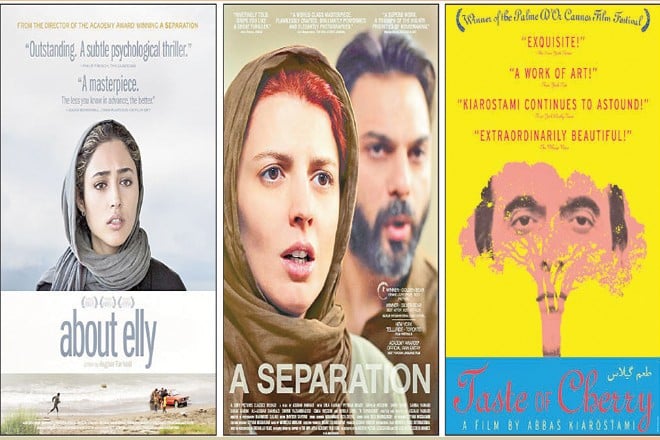
Replacing Bollywood on the big screen with Iranian movies provides, Pakistanis easy access to a phenomenal industry

When news came out that Iranian and Turkish movies would replace the banned Indian films on silver screens across the country, film buffs rejoiced. Those interested in the world of cinema are well aware of how highly acclaimed Iranian films are and the number of accolades Persian cinematic ventures have won globally. If there’s ever been a counter to Western propaganda against Iran, it could very easily be epitomized by their film industry.
While there is no solid confirmation yet from cinema owners of when or which films will inaugurate this experiment, Executive Director of Pakistan National Institute for Folk and Traditional Heritage (Lok Virsa) Fouzia Saeed and Mohsin Yaseen, General Manager Marketing of Pakistan’s Cinepax Cinema have both been quoted expressing interest in filling the gap introduced by banning Indian movies by turning to other regional partners for entertainment.
It also doesn’t hurt that Iran, more so than "secular" Turkey has a societal structure similar to ours. The kind of restrictions Pakistani cinema faces in terms of creating content for a conservative society and a scissor happy censor board are also the kind of impediments that the Iranians face with a strong, religiously motivated government.
However, it appears that the restrictions are all Iranian cinema and its Pakistani counterpart have in common. Over the years, almost under the radar, the Iranians have developed not only their visual language which is unique but also honed the lens through which they view daily life. Their movies don’t rely on glamour or a song-dance routine to engage the audience but rather choose to explore themes focusing on culture, community and humanity.
We can wax on and on in praise of Iranian cinema but the test of the pudding is in the taste. Here’s a round-up of some of our favourite Iranian films that are a great way to help you begin exploring this unique and thought-provoking cinema.
About Elly
Asghar Farhadi’s 2015 gripping drama about the disappearance of Elly, a school teacher from Tehran who travels to a sea side resort with other thirty-something professionals from the city and the ensuing discoveries is a tale that’ll have you at the edge of your seat. A psychological drama, the film explores relationships in modern times and won the director the Silver Bear for Best Director at the 59th Berlin International Film Festival for the film. The film was also nominated for 10 awards at the 27th Fajr International Film Festival in Tehran where Farhadi won the Crystal Simorgh for best directing. About Elly was Iran’s official submission for the competition in the Foreign Film section at the 82nd Academy Awards. If the awards and nominations don’t impress you just get your hands on the film itself and let the story woo you.
A Separation
Another Asghar Farhadi venture, this 2011 drama focuses on a middle-class couple who separate and the conflict that arises due the husband’s ailing father and the help required for his care. The film won the Academy Award for Best Foreign Language Film in 2012, becoming the first Iranian film to win the award. It received the Golden Bear for Best Film and the Silver Bears for Best Actress and Best Actor at the 61st Berlin International Film Festival, becoming the first Iranian film to win the Golden Bear. It also won the Golden Globe for Best Foreign Language Film. A Separation was also nominated for the Academy Award for Best Original Screenplay, making it the first non-English film in five years to achieve this. The male titular lead played by Peyman Moaadi is also one of Iranian cinema’s most celebrated modern day actors.
Taste of Cherry
Iranian filmmaker Abbas Kiarostami is one of the film makers credited for putting Iranian cinema on the map in the 80s. His 1997 movie, Taste of Cherry, a minimalistic film about a man who drives around the city hoping to find someone to bury him after he commits suicide won the Palme d’Or at the Cannes Film Festival the year of its release. While European cinema lauded Kiarostami’s venture the Americans were much less gracious. If our verdict counted, we’d give it four and half star but don’t just take our word for it, watch the movie for yourself and decide.